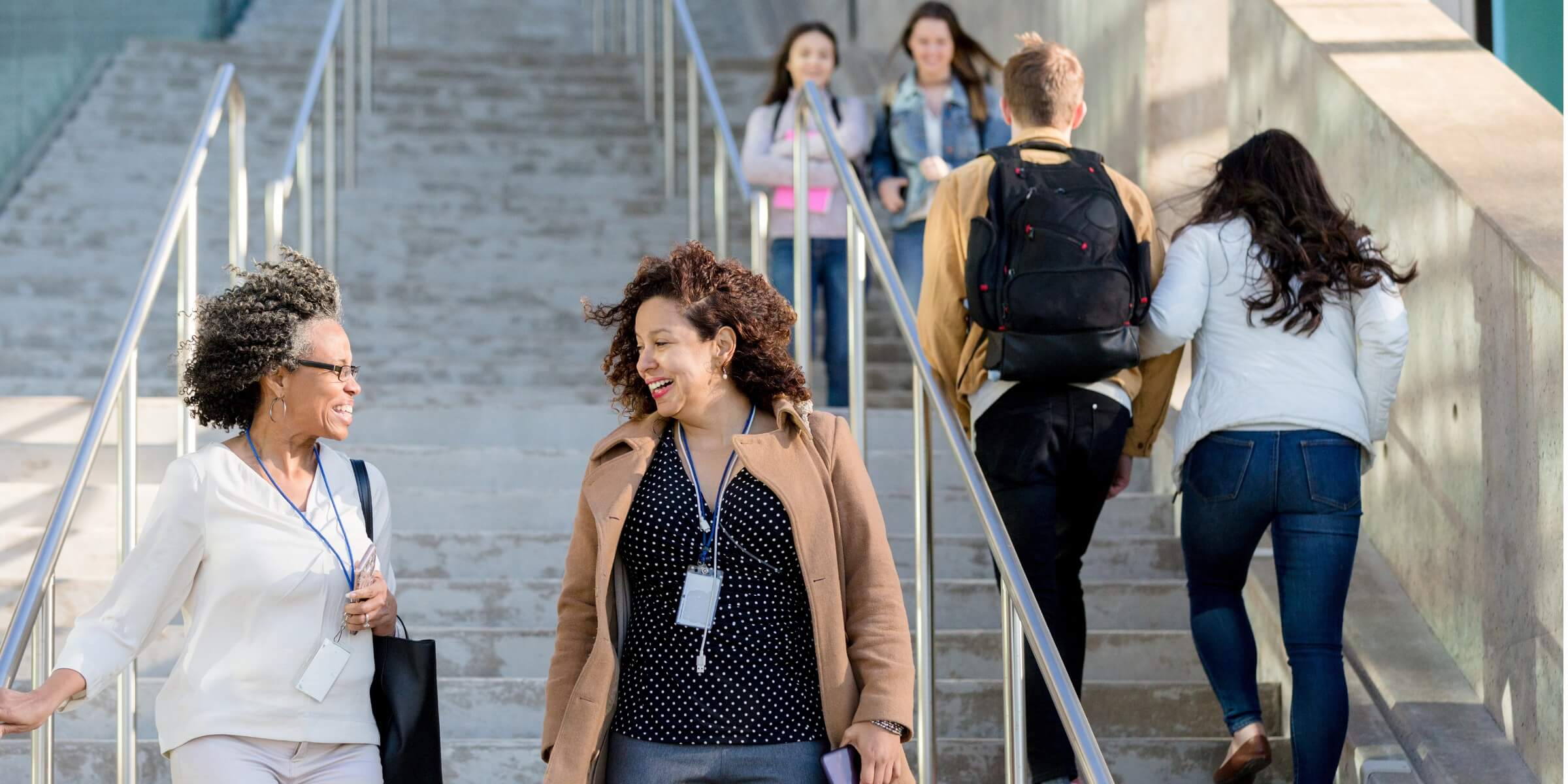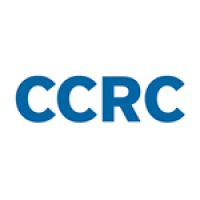By R. Heather Macdonald, Mark Maier, Katherine R. Rowell, and Susan Bickerstaff
Community college faculty work in a demanding environment. Relative to their peers at four-year colleges and universities, they teach higher course loads and work in lower-resourced institutions. Community college faculty are also more likely to be part-time and/or work in departments with significant numbers of part-time faculty. Because community colleges serve as the gateway to postsecondary education for students who have been systematically marginalized and underserved, faculty must employ equity-minded, high-quality teaching practices but often lack opportunities for professional development. The move to online work and teaching and other disruptions from the pandemic have exacerbated these challenges.
Faculty professional support networks can help combat the isolation inherent in higher education teaching, provide a source for new teaching strategies, and catalyze other improvement efforts. Community college faculty may find support networks within their institution, but many are disconnected from another potential source of camaraderie, professional learning, and resources: disciplinary societies.
Disciplinary societies are composed of academics and professionals in a particular field. Examples include the American Chemical Society, the American Historical Association, and the American Sociological Association. The recent workshop Strengthening Engagement Between Disciplinary Societies and Community Colleges, which was built on ideas from the edited volume Community College Faculty and Engagement with Disciplinary Societies, brought together over 100 participants from across the country representing 13 STEM and humanities disciplines. Through discipline-specific and multidisciplinary discussions, participants shared what is working well and what could be improved in the relationship between community colleges and disciplinary societies.
A new report on the workshop makes recommendations for strengthening community college faculty engagement in disciplinary societies.
Include community college faculty in the fabric of the disciplinary society
While disciplinary societies have much to offer community college faculty, they vary in their emphases and cultures. If the focus of a society has been primarily on research rather than teaching or if they project an elitism that perpetuates stereotypes about community colleges, community college faculty may not feel they belong. Community college faculty should be included on committees and in leadership positions so that disciplinary societies can better understand their professional needs and include their voices and perspectives. Moreover, to truly include community college faculty perspectives, disciplinary societies must engage adjunct faculty. They can advocate for funding accessible to adjuncts, offer flexible and online engagement and learning opportunities, and provide resources tailored to adjunct faculty needs.
Support diversity, equity, and inclusion
Community college faculty are seeking evidence-based instructional strategies to meet the needs of students historically marginalized in higher education and are working to create a more culturally sustaining and inclusive curriculum. Because of the students they serve, community college faculty are often leaders of this work in their fields. At the same time, many faculty teach in small departments—sometimes with only one full-time faculty member in a discipline—which limits opportunities for collaboration and professional learning. Disciplinary societies can serve as a clearinghouse for inclusive curricular materials as well as for discipline-specific professional development on strategies to improve accessibility and inclusion in the classroom. Several disciplinary societies have begun this work; for example, the American Geophysical Union offers a community of practice and a professional development program to build DEI networks and leadership to create a more inclusive science community. By strengthening connections between disciplinary societies and community colleges, which serve the most diverse student populations in higher education, the organizations can improve the pipeline for students from underrepresented populations to join their field.
Support student career development and transfer to four-year institutions
Disciplinary societies have the potential to improve the learning experiences of students in community colleges by creating discipline-specific materials and resources focused on careers. These may include videos on professions, open-educational resources, and assignments to explore career pathways. The organizations can facilitate cross-sector collaboration on learning outcomes for the lower-division curriculum in the discipline, which may strengthen transfer pathways for students. Undergraduate research can also connect students to the discipline, inspire them to think about majors, and introduce job opportunities. Disciplinary societies can advocate for and support funding of community college research, presentations at conferences, and collaborative research with four-year institutions.
The workshop surfaced these and other recommendations to reshape disciplinary societies to meet the needs and challenges facing community college faculty. While these changes will benefit community college faculty, the benefits to the societies of increasing community college faculty engagement should not be understated. Community college faculty bring expertise in teaching, faculty development, serving diverse students, educational and discipline-based research, leading reform efforts, and many other areas. As partners, community faculty and disciplinary societies can improve undergraduate education in community colleges for students, faculty, and administrators and in doing so strengthen the discipline.
R. Heather Macdonald is a professor of geology at William & Mary. Mark Maier is a professor of economics at Glendale Community College in California. Katherine R. Rowell is a professor of sociology at Sinclair Community College. Susan Bickerstaff is a senior research associate and program lead at CCRC.





